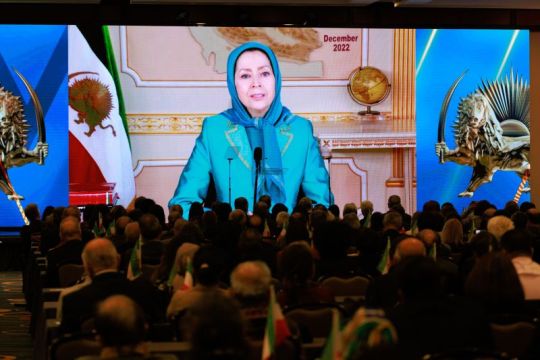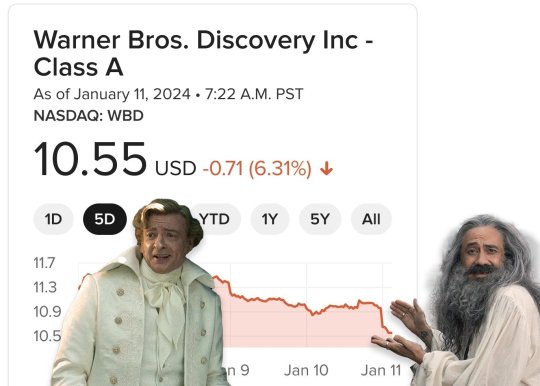#department of trade and industry
Explore tagged Tumblr posts
Text

But of course I do the all MOTHER for the apple theme guys
#post#lmfao ive been planning to do her but never really sorted her outfit. So doing that within a regular round makes me content#1000xresist#department of trade and industry
20 notes
·
View notes
Text
*personal
#today during our one on one my boss told me he would help me with trying to kickstart my writing career over the next year#he said he would recommend me for writer's assistant positions#he said he knows who's running the 24-25 writer's mentorship program and would put in a word when i apply this year#he if i couldn't find a script i need to read for reference he would try to find it for me#he sent me a pilot script for one of our new series and said we could read and meet to discuss character story arc and format questions#he knows i'm moving to mexico in 2025 and says he wants to do what he can to help with my career while he can#for context everyone is anxious about some industry news being reported in the trades about our company being bought by another one#and what it may mean for layoffs in our department#also he says they are testing ai workflow with a key element in our job responsibilities and that means they're prob gonna transition fully#at some point we're all gonna have to pivot#and he'd rather we both pivot to something we want to as opposed to being stuck on the same path and then layed off#so#i am gonna just prepare myself as best i can#if he keeps his word it could be even more of a transformative year for me#I won't have to do what i need to without help#in this industry knowing the right people and being prepared for opportunities is important#i'm just gonna put my head down and do what i need to
5 notes
·
View notes
Text

"LABOR GROUP PLANS CONTINUED PROTEST TO CITY AND OTTAWA," Toronto Globe. August 4, 1933. Page 9. --- Labor Representative's Inclusion on Relief Commission Urged -- RAIL WORKERS BACKED --- At last night's meeting of the Toronto District Trades and Labor Council in the Labor Temple, the delegates decided unanimously "to continue to protest" alike to Mayor Stewart and the City Council "at the non-inclusion of a representative of organized labor on the Civic Commission inquiring into relief and welfare work in Toronto," and also to the Federal Minister of Railways and Labor in Ottawa "in regard to railway workers being asked to bear an undue proportion of the load arising out of the shrinking transportation revenues on Canadian railways." Described as "Deadwood." In the latter connecton, Delegate A. Evans, Ontario Lodge, 619, Brotherhood of Railway Carmen of America, drew attention to the fact that "during the depression years there have been over 23, railway workers put out of service, and the wages of those retained reduced by 1 per cent., many of whom are working part-time. A recent newspaper cartoon dealing with that situation intimated that the systems were getting rid of that much 'dead-wood." Apparently the welfare of those workers takes second place to that of the bond holders and the preferred shares. These economies may or may not have been effective, but certainly they have reduced the purchasing power of the people."
Vice-President Dan Noble supplemented that statement and declared: "The position of rail shopmen today is something like that of certain firms in Toronto, to whom Mayor Stewart referred recently, when he pointed cut that the wage-levels were deplorable that, if not raised, the Control Board might have to name them, in the light of the fact that the Welfare Department felt compelled to permit certain employees to continue to draw relief supplies, in addition to their wages. "If care is not taken," concluded delegate Noble, "the railway mechanics will be in a similar plight."
Musical Group to March. John Sutherland, of the Demon--- on the forthcoming annual Labor Day Parade, intimating that a fifty-piece band of the Musical Protective Association will march this year. In same connection, delegate Charles Bal stated: "It should be distinctly understood that this annual parade is conducted by the international trade unions of this city; that the marchers are headed by the Mayor and the civic authorities: and that we will tolerate no contact of any kind what-ever with Communist or near-Communist groups that are not native to nor will they thrive on Canadian soil."
Applause greeted this latter assertion.
Three delegates to the forthcoming Labor Congress of Canada (Windsor) are to represent the Trades Council.
The pre-delegate expenses must not exceed an aggregate of $100, and the representatives will be chosen next meeting from the following nominees: W. Genovese, J. W. Buckley,J. Noble, D. W. Kennedy, C. Locks,C. Ball. W. Dunn, J. Jenkinson, and E. E. Woollen.
#toronto#industrial relations#railway capitalism#railway companies#railway workers#railway union#wage cuts#union demands#union men#working class politics#great depression in canada#austerity politics#austerity measures#capitalism in canada#toronto trades and labour council#welfare department#unemployment relief
1 note
·
View note
Text
DTI exceeds 2024 investment approval target
More than P1.6 trillion in approved investments have been confirmed and this means that the Department of Trade and Industry (DTI) exceeded its target for 2024, according to a news article by the Philippine News Agency (PNA). To put things in perspective, posted below is an excerpt from the PNA news article. Some parts in boldface… The Department of Trade and Industry (DTI) said approved…
#Asia#Bing#Blog#blogger#blogging#Board of Investments (BOI)#Bongbong Marcos#business#business news#Carlo Carrasco#Department of Trade and Industry (DTI)#DTI#economic#economic dynamism#economic growth#economic recovery#economic zones#economics#economy#Economy of the Philippines#Facebook#foreign investors#geek#Google#Google Search#governance#Instagram#invest#investing#investment
0 notes
Text
When a Missouri veteran wrote his local paper about U.S. “meddling” in the Anglo-Iranian oil dispute, he got a direct reply from the British Consul in St. Louis.
The Mossadegh Project
#iran#iranian#tehran#middle east#foreign policy#cold war#1950's#persian#britain#british#st louis#missouri#st louis missouri#british embassy#diplomacy#foreign affairs#oil and gas#oil industry#oil#british petroleum#BP#oil prices#oil trading#british history#world history#letter to the editor#state department#history
0 notes
Text
youtube
#f-35#defense#politics#trump#military#congress#pentagon#vox#joint strike fighter#military industrial complex#department of defense#senate#lockheed martin#boeing#raytheon#arms#arms trade#air force#marines#navy#planes#jet fighter#f35#F-35#jobs#america#f35 disaster#jet#this jet is a disaster#hasanabi
0 notes
Text
A darling of US conservatives, Iran's top opposition group may face an uncertain future
Editor’s Note: A version of this story appears in CNN’s Meanwhile in the Middle East newsletter, a three-times-a-week look inside the region’s biggest stories. Sign up here. CNN — Its annual conferences have attracted the who’s-who of right-wing and hawkish, conservative politicians from the West, including former US Secretary of State Mike Pompeo, former United States National Security…

View On WordPress
#albania#brand safety-nsf sensitive#brand safety-nsf war and military#brand safety-nsf weapons#business#business and industry sectors#conservatism#continents and regions#domestic alerts#domestic-international news#domestic-us politics#economy and trade#energy and utilities#europe#france#government and public administration#government bodies and offices#government departments and authorities#iab-business and finance#iab-industries#iab-politics#iab-power and energy industry#international alerts#international relations#international relations and national security#international-us politics#iran#iran nuclear development#iran-us tensions#middle east
0 notes
Text
US defense chief jabs at Netanyahu's plan to weaken courts as protesters block Israeli airport | CNN
Tel Aviv, Israel CNN — US Defense Secretary Lloyd Austin took a swipe at Prime Minister Benjamin Netanyahu’s plan to weaken Israel’s judicial system as protesters paralyzed two of Tel Aviv’s main travel arteries on Thursday, intensifying a nationwide movement against the controversial proposals. A CNN team at Ben Gurion Airport saw people walking towards Terminal 3 with suitcases because of…

View On WordPress
#air transportation#airports#benjamin netanyahu#brand safety-nsf crime#brand safety-nsf other#brand safety-nsf sensitive#Business#business and industry sectors#civil disobedience#continents and regions#crime#defense departments#democracy#domestic alerts#domestic-international news#domestic-us news#domestic-us politics#economy and trade#forms of government#government and public administration#government bodies and offices#government departments and authorities#iab-air travel#iab-crime#iab-law#iab-politics#iab-travel#iab-travel type#international alerts#international relations
0 notes
Text
Senate votes to overturn Biden administration retirement investment rule Republicans decry as 'woke' | CNN Politics
CNN — The Senate passed a politically charged resolution on Wednesday to overturn a Biden administration retirement investment rule that allows managers of retirement funds to consider the impact of climate change and other environmental, social and governance factors when picking investments. Republicans complain the rule is “woke” policy that pushes a liberal agenda on Americans and will…
View On WordPress
#banking#Business#compensation and benefits#domestic alerts#domestic-business#domestic-us politics#economy and trade#employment and income status#finance and investments#financial markets and investing#government and public administration#government bodies and offices#government departments and authorities#government organizations - us#iab-business#iab-business and finance#iab-business banking & finance#iab-financial industry#iab-industries#iab-personal finance#iab-politics#iab-retirement planning#international alerts#International Business#international-us politics#joe biden#labor and employment#labor departments#Legislation#Liberalism
0 notes
Video
youtube
Who’s to Blame for Out-Of-Control Corporate Power?
One man is especially to blame for why corporate power is out of control. And I knew him! He was my professor, then my boss. His name… Robert Bork.
Robert Bork was a notorious conservative who believed the only legitimate purpose of antitrust — that is, anti-monopoly — law is to lower prices for consumers, no matter how big corporations get. His philosophy came to dominate the federal courts and conservative economics.
I met him in 1971, when I took his antitrust class at Yale Law School. He was a large, imposing man, with a red beard and a perpetual scowl. He seemed impatient and bored with me and my classmates, who included Bill Clinton and Hillary Rodham, as we challenged him repeatedly on his antitrust views.
We argued with Bork that ever-expanding corporations had too much power. Not only could they undercut rivals with lower prices and suppress wages, but they were using their spoils to influence our politics with campaign contributions. Wasn’t this cause for greater antitrust enforcement?
He had a retort for everything. Undercutting rival businesses with lower prices was a good thing because consumers like lower prices. Suppressing wages didn’t matter because employees are always free to find better jobs. He argued that courts could not possibly measure political power, so why should that matter?
Even in my mid-20s, I knew this was hogwash.
But Bork’s ideology began to spread. A few years after I took his class, he wrote a book called The Antitrust Paradox summarizing his ideas. The book heavily influenced Ronald Reagan and later helped form a basic tenet of Reaganomics — the bogus theory that says government should get out of the way and allow corporations to do as they please, including growing as big and powerful as they want.
Despite our law school sparring, Bork later gave me a job in the Department of Justice when he was solicitor general for Gerald Ford. Even though we didn’t agree on much, I enjoyed his wry sense of humor. I respected his intellect. Hell, I even came to like him.
Once President Reagan appointed Bork as an appeals court judge, his rulings further dismantled antitrust. And while his later Supreme Court nomination failed, his influence over the courts continued to grow.
Bork’s legacy is the enormous corporate power we see today, whether it’s Ticketmaster and Live Nation consolidating control over live performances, Kroger and Albertsons dominating the grocery market, or Amazon, Google, and Meta taking over the tech world.
It’s not just these high-profile companies either: in most industries, a handful of companies now control more of their markets than they did twenty years ago.
This corporate concentration costs the typical American household an estimated extra $5,000 per year. Companies have been able to jack up prices without losing customers to competitors because there is often no meaningful competition.
And huge corporations also have the power to suppress wages because workers have fewer employers from whom to get better jobs.
And how can we forget the massive flow of money these corporate giants are funneling into politics, rigging our democracy in their favor?
But the tide is beginning to turn under the Biden Administration. The Justice Department and Federal Trade Commission are fighting the monopolization of America in court, and proposing new merger guidelines to protect consumers, workers, and society.
It’s the implementation of the view that I and my law school classmates argued for back in the 1970s — one that sees corporate concentration as a problem that outweighs any theoretical benefits Bork claimed might exist.
Robert Bork would likely regard the Biden administration’s antitrust efforts with the same disdain he had for my arguments in his class all those years ago. But instead of a few outspoken law students, Bork’s philosophy is now being challenged by the full force of the federal government.
The public is waking up to the outsized power corporations wield over our economy and democracy. It’s about time.
2K notes
·
View notes
Text
Writers Guild West Official: Era of Hollywood Mergers Hastened the Strike
August 10, 2023
Laura Blum-Smith, the Writers Guild of America West’s director of research and public policy, considers the strike a result of a tsunami of Hollywood mergers that has handed studios and streamers the power to its exploit workers.
“Harmful mergers and attempts to monopolize markets are a recurring theme in the history of media and entertainment, and they are a key part of what led 11,500 writers to go on strike more than 100 days ago against their employers,” Blum-Smith said on Thursday at an event with the Federal Trade Commission and Department of Justice over new merger guidelines unveiled in July.
She pointed to Disney, Amazon and Netflix as companies that “gained power through anticompetitive consolidation and vertical integration,” allowing them to impose “more and more precarious working conditions, increasingly short term employment and lower pay for writers and other workers across the industry.” But she sees revisions to the merger guidelines that address labor concerns a key part of the solution to prevent further mergers in the entertainment industry moving forward.
“The FTC and DOJ’s new draft merger guidelines are part of a deeply necessary effort to revive antitrust enforcement,” she added. “Compared with earlier guidelines, the new ones are much more skeptical of the idea that mergers are the natural way for companies to grow. And they focus more on the various ways mergers hurt competition, including how mergers impact workers.”
In July, the FTC and DOJ jointly released a new road map for regulatory review of mergers. They require companies to consider the impact of proposed transactions on labor, signaling that the agencies intend to review whether mergers could negatively impact wages and working conditions. FTC commissioner Alvaro Bedoya, who was joined by agency chair Lina Khan, said in a statement about the guidelines that “a merger that may substantially lessen competition for workers will not be immunized by a prediction that predicted savings from a merger will be passed on to consumers.” Historically, transactions have been considered mostly through the lens of benefits to consumers.
The guidelines lack the force of law but influence the way in which judges consider lawsuits to block proposed transactions. They also tell the public how competition enforcers will assess the potential for a merger’s harm to competition.
Antitrust enforcers have steadily been taking notice of negative impacts to labor as a result of industry consolidation. “We’ve heard concerns that a handful of companies may now again be controlling the bulk of the entertainment supply chain from content creation to distribution,” Khan said last year during a listening forum over revisions to the guidelines, in a nod to anticompetitive conduct by studios that led to the Paramount Decrees. “We’ve heard concerns that this type of consolidation and integration can enable firms to exert market power over creators and workers alike.”
Adam Conover, writer and WGA board member, said in that April 2022 forum that his show Adam Ruins Everything was killed by AT&T’s acquisition of Time Warner in 2018 when TruTV’s parent company forced the network to cut costs. He stressed that a handful of companies “now control the production and distribution of almost all entertainment content available to the American public,” allowing them to “more easily hold down our wages and set onerous terms for our employment.” It’s not just writers that are impacted by an overly consolidated Hollywood either, he explained. After Disney acquired 21st Century Fox in 2019, he said that the studios pushed the industry into ending backend participation and trapping actors in exclusive contracts preventing them from pursuing other work.
Blum-Smith said that aggressive competition enforcement is necessary as “Wall Street continues to push for more consolidation among our employers despite the industry’s history of mergers that failed to deliver any of the consumer benefits they’ve claimed that left writers and audiences worse off with less diversity of content and fewer choices.”
“More mergers will leave writers with even fewer places to sell their work and tell their stories and the remaining companies will have even more power to lower pay and worsen working conditions,” she warned. “Strong enforcement against mergers is essential to protect workers in media and workers across the country and these guidelines are an important step in the right direction.”
2K notes
·
View notes
Text

pompy
11 notes
·
View notes
Text
Now we are cooking with gas in the Big Ideas department, guys. All the emails, spam posts, and tags do get people listening. Not to mention Max stock is plummeting(fyi stocks have dropped below 10 percent today). They expect to wear us down and well stop. Guess what, we won't!



This fight is not just about our show.
This is about the state of the entertainment industry being decimated by late stage capitalism until all that's left are shit Harry Potter reboots and exploitation porn reality shows. Art to these people is dead. Just tax write offs amd insider trading. If a show this successful is axed no show will be safe I guarantee you.


568 notes
·
View notes
Text
Blüdhaven
1310 Parkthorne Avenue
7:20 AM
“In more recent news, the Office of Foreign Asset Controls, a branch of the Department of the Treasury, has administered a total embargo on trade with the island nation of Santa Prisca. To comply with this action, Congress has issued a total recall to retailers on all products produced by companies based in the island nation, including the Zesti Cola Company.”
Dick shot up from the couch, nearly knocking over his can of Zesti in the process. “TIM!” he shouted. “Come over here! You gotta see this!”
“Too loud, Dick, jeez,” Tim responded, walking into the den with a bowl of cereal and a yawn. “What’s up?”
Rather than answering, Dick gestured to the still-ongoing news broadcast.
“As most of our viewers are likely aware, Zesti Cola, the namesake of the company, has been at the forefront of the soft drinks industry in the States since the late 19th century, rivaled only in popularity by Soder Cola. While Zesti Cola’s popularity has declined in recent years, the new embargo on trade with Santa Prisca will likely only accelerate that decline. Current CEO Nicodemus Branchwater was unavailable for comment.”
Dick looked back at Tim, whose face was painted with dazed horror. Dick grabbed the cereal bowl out of the kid’s hands before he could drop it.
Eventually, Tim managed to tear his eyes away from the silver-screened harbinger of doom to meet Dick’s gaze. “We have to do something about this, right?” Tim intoned, more of a plea than a question.
Dick nodded seriously. “Did you bring your suit?”
Tim quirked his lip in a slight frown. “Left it at home. Didn’t think I’d need it for the couple days I’m here.”
Dick waved off Tim’s concern. “That’s fine. We were gonna need to stop by the Cave for a ride anyway. Let me grab my costume and we can get going.” Dick ruffled the kid’s hair on the way past to his bedroom.
The way Tim’s face lit up at the gesture could have powered Blüdhaven for a year.
#my writing#snippet#fic snippet#the cola caper#The Brothers#I already knew Tim loved Zesti#but then I found out Dick does too#and thus a perfect fic idea was born#wip#my wips#dick grayson#nightwing#tim drake#red robin#dc red robin#robin#dc robin#batman#dc#dc comics#🐍
67 notes
·
View notes
Text
DTI executive says Philippines is unlikely to be hit by Trump’s planned tariff hikes
Based on available details and key factors, an executive of the Department of Trade and Industry (DTI) stated that the Philippines is unlikely to be hit by the planned tariff hikes of the returning United States President Donald Trump whose administration will formally start on January 20, 2025, according to a Philippine News Agency (PNA) news article. To put things in perspective, posted below…
#America#Asia#Bing#Blog#blogger#blogging#business#business news#Carlo Carrasco#Department of Trade and Industry (DTI)#Donald J. Trump#Donald Trump#economic dynamism#economic growth#economics#economy#Economy of the Philippines#Facebook#finance#free trade agreement (FTA)#geek#Google#Google Search#governance#gross domestic product (GDP)#income#Instagram#jobs#Marco Rubio#news
0 notes
Text
In early September, the U.S. Department of Justice unveiled a series of sweeping investigations and indictments into Russian information projects aimed at disrupting the 2024 U.S. presidential election. One of these projects, which secretly funded right-wing influencers to promote former President Donald Trump’s campaign, is an escalation from prior Russian information operations, such as their email hacks during the 2016 election.
But another Russian team, described in a planning document published by the Department of Justice, approached disrupting the election a little bit less directly.
The Russian plan describes the “Good Ol’ USA Project” as a “guerrilla media” campaign intended to target “sentiments that should be exploited in the course of an information campaign in/for the United States.” Written by Ilya Gambashidze, a figure already facing sanctions for his disinformation work aimed at smearing Ukraine, the document suggests focusing influence efforts on the “community of American gamers, users of Reddit and image boards, such as 4Chan,” since they are the “backbone of the right-wing trends” online in the United States.
The inclusion of gamers in this campaign points at emerging dynamics in a global struggle over human rights online—one that policymakers need to pay closer attention to.
According to the Entertainment Software Association, a trade group, around 65 percent of Americans—or 212 million people—regularly play video games. Globally, video games generate more than $280 billion in revenue, far larger than traditional culture industries such as film or book publishing. While a trickle of stories about other attempts to push Russian propaganda in video games have attracted some scrutiny from journalists, the question remains: Apart from scale, what is it about gamers that Russia thinks will make them receptive to its messaging?
For starters, video game culture has already become an important venue for extremist right-wing groups to share and normalize their ideas. Far-right groups modify video games to be more explicitly racist and violent than their designers intended. Even gaming spaces designed for children, such as Roblox, which allows players to create their own game worlds and storylines, have attracted thousands of people (many of them young teenagers) to use the game’s freewheeling mechanics to play-act fascist violence.
The prevalence of hate groups has shaped video games into a place where culture and politics are debated, often contentiously, with predictable fault lines emerging along U.S. partisan boundaries. While the industry itself has made considerable progress in improving representation and reducing acts of horrific sexual violence, it has received pushback from far-right figures who are angry at the so-called “wokes” for supposedly “ruining games.”
For a decade, repeated efforts to “reclaim” gaming from an imagined enemy composed of women, Black people, and LGBT+ folks have bubbled up from the darkest corners of the internet, often in places such as Reddit (where this Russian campaign aimed its influence activity). These movements have spilled over into more mainstream political movements that can shape election outcomes. Consider how Gamergate, a 2014 campaign to terrorize women working in the industry into invisibility, metastasized into an online troll army working to get former U.S. President Donald Trump elected in 2016.
These far-right efforts are ongoing, even without Russian help. Last year, a group of gamers who were angry at inclusive representation in games launched a harassment campaign—colloquially called Gamergate 2.0—against a story consulting company.
Earlier this year, when Ubisoft began promoting the latest installment of its popular Assassin’s Creed franchise, this time set in feudal Japan, the trailer prominently featured Yasuke, an African man who served as a samurai in 16th-century Japan. Despite being based on a real historical figure, this movement (egged on by X owner and billionaire Elon Musk) raged at the decision, as if acknowledging Black people in the past was somehow bad. In their quest to sow division within the United States, Russian information operations analysts do not need to look very far to find political allies in gaming communities.
It helps that Russia enjoys greater social legitimacy in gaming than it does in, say, news journalism. You can see this legitimacy reflected in the language gamers that use as they play. Around the same time as Gamergate, a vulgar Russian phrase began popping up in the chats that players use to communicate with each other in non-Russian game streams, primarily in the multiplayer first-person shooter Counterstrike: Global Offensive. The game has around 4 million Russian players, and as it grew in popularity in the mid-2010s, the Russian obscenity cyka blyad became common invective during frustrating moments of play. Its widespread adoption among non-Russian-speaking gamers struck many as odd.
Cyka blyad rose in prominence alongside Russia’s descent into becoming an international pariah, which has limited the spaces where Russian gamers can play games online. In 2014, Russia passed a law requiring websites that store the personal information of Russian citizens to do so on servers inside the country. This was compounded in 2022, when companies ranging from Activision Blizzard to Nintendo protested the invasion of Ukraine by either suspending sales or shutting down Russia-specific services. Despite its residents representing around 10 percent of Counterstrike’s player base, there are no host servers for the game anywhere in Russia.
So, when Russian players log on to find players for a match, they use servers based in Europe or sometimes North America. These servers place them into direct contact with players on the other side of international conflicts—something that many players within the European Union found deeply frustrating after Russia’s illegal annexation of Crimea in 2014, as their games became places where people would argue about the annexation.
But another reason why Russian slang began infiltrating non-Russian gaming spaces is that after years of censorship and exclusion from both Russian and Western governments, games are one of the only spaces direct exchanges between ordinary Russian and Western people. Russians lack access to many Western social media platforms—such as Instagram (blocked by the Russian government in 2022, though earlier this year some Russian users regained access)—and were locked out of Western game stores, even as they kept access to many online games. As a result, matches in a game such as Counterstrike or Fortnite became one of the only places where these informal cultural exchanges could take place.
This narrowing of exchange spaces highlights how video games can become useful conduits for propaganda, and it demonstrates that video games are becoming an important, if underappreciated, site for ideological disputes over politics, speech, identity, and expression.
Other countries have begun to use video games for strategic communication. The U.S. government operates semiprofessional esports teams through the Defense Department, whose remit includes convincing young people to become interested in enlistment. China launched a military-produced first-person shooter game to boost recruitment and to humanize the image of the People’s Liberation Army abroad.
The Chinese developers of the hugely popular game Black Myth: Wukong instructed gaming influencers who were given early access to avoid discussing “feminist propaganda” while reviewing the game, apparently to adhere to government censorship rules. And Russian propaganda about the country’s war with Ukraine has begun appearing in games that allow user-generated content, such as Minecraft and the aforementioned Roblox, as the Kremlin seeks to persuade Westerners to end their support for Ukrainian freedom. In response, the U.S. State Department has begun developing its own games intended to train players to resist Russian disinformation.
This isn’t an abstract challenge. Scholars have drawn linkages between Russia’s propaganda efforts and President Vladimir Putin’s decision to launch the full-scale invasion of Ukraine in 2022 as both bots and human agents aggressively pushed narratives about the need to “pacify” an ostensibly violent Ukraine by invading. The invasion was further justified by the myth of Novorossiya, or a pan-Russian identity that views Ukrainians as misguided Russians who need to be forcibly reclaimed.
These efforts to spread propaganda through gaming are rarely successful. Few people wanted to, say, join Hezbollah after the Lebanese militant group launched its own game, Special Force, in 2003. The terrorist group al Qaeda has used video games for recruitment since 2006, but there is little evidence that any meaningful number of people have been recruited because of it. Scholars have fretted for years over the “militarization” of video games as the Pentagon gets more and more involved in the industry, yet U.S. military recruitment is in long-term decline, and public confidence in the nation’s military is at a two-decade low. If games-based propaganda works, we do not yet know where or how it does.
The revelations about Russian video game propaganda hint at some intriguing innovation in how strategic messages might be spread through nontraditional channels, but they also point to the areas where traditional channels for propaganda have closed down. Despite efforts by Republicans in Congress to falsely accuse agencies such as the Global Engagement Center of partisan bias when addressing foreign misinformation, the U.S. government takes the challenge seriously and, as this 2022 report on the propaganda channels , is working to thwart many of Russia’s best efforts to target Americans with propaganda, like when they sanctioned several Russian oligarchs who had been financing US-directed misinformation.
But even beyond government counterprogramming, there are plenty of obstacles to Russia’s efforts within the world of gaming. For example, Ukraine’s video games industry is respected in the United States and Europe. The developer 4A, which was based in Kyiv before the invasion, produces popular games such as the Metro franchise. That company, however, had to fly its employees abroad to keep them safe from the indiscriminate Russian barrages against the Ukrainian capital and other cities. This sent shockwaves through the industry, as it made some of the consequences of the invasion seem more viscerally real even to people who do not follow politics closely.
As a result of American and European sanctions, Russians have a more difficult experience legally purchasing software and services such as online gaming. (Some Russian game companies have since relocated abroad to more neutral countries, such as Cyprus, to continue operating globally). Wargaming, the Belarusian company that makes World of Tanks, also fled to Cyprus, which has become an informal hub of Russian game companies.
Looking forward, there are real questions about what video games are going to become in the information war between Russia and the West. Russian censors have proposed deploying neural networks to search for banned content in games, but it is unclear whether those systems might disrupt gaming for everyone else.
Long before the invasion of Ukraine, Moscow forced Activision to censor the infamous airport sequence in the rerelease of Call of Duty: Modern Warfare 2 (in which players assume the role of a Chechen terrorist and can slaughter hundreds of screaming civilians at Sheremetyevo International Airport), and it has not been shy about using government coercion to erase LGBT+ people from gaming (paralleling to its embrace of the U.S. far right). Policymakers should look at ensuring that global communication platforms—and that is what video games are—remain open to free speech and safeguard other basic human rights.
While the latest Russian effort to target games seems to have been thwarted by the U.S. Justice Department, there will undoubtedly be more programs looking to repeat and extend the success of Gamergate in empowering the far right, perhaps this time by enabling it to obstruct effective governance in the United States. The Good Ol’ USA Project also targeted its influence operations toward websites such as Reddit and 4Chan, both of which are as central to the sustainment of far-right movements as gaming. Emerging platforms—which range from popular Chinese games to channels such as the online chat service Discord, which is difficult to monitor at scale and routinely hosts leaks of sensitive military documents—present new opportunities where Russian influence could be targeted.
These strange spaces are the frontier where a global battle for speech is being fought.
99 notes
·
View notes